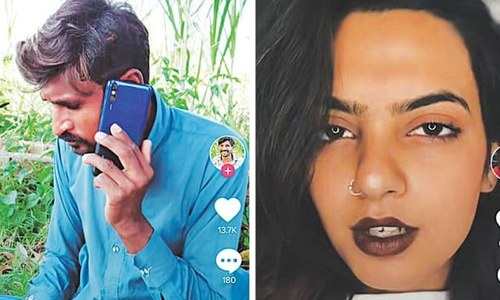Grindr said on Thursday it was deeply disappointed by the government's decision this week to block it and four other dating apps, including Tinder, after they were deemed to be disseminating “immoral content”.
The Pakistan Telecommunications Authority (PTA) said on Tuesday it was seeking the removal of “dating services” from apps Tinder, Grindr, Tagged, Skout and SayHi and asking them to moderate live-streamed content in accordance with local laws.
“We are deeply disappointed by the ... decision to ban Grindr and other dating apps that allow Pakistani citizens to connect with others on our platforms,” Grindr's chief operating officer Rick Marini said in an emailed statement to Reuters.
He said the US-based company was “exploring ways that we can be of service to the LGBTQ community in the region”.
A recent clampdown on online content by the PTA has also seen warnings given to other major platforms.
Tinder, a globally popular dating app owned by Match Group, said in an emailed response to Reuters that it was always willing to work with regulators and law enforcement.
“We welcome the opportunity to discuss our product and moderation efforts with the Pakistan Telecommunication Authority and look forward to a meaningful conversation,” a Tinder spokesperson said.
Grindr's statement did not say whether it would seek to discuss the matter further with the PTA.
On Wednesday, the PTA said it had asked video-sharing platform YouTube to immediately block certain content for viewing in Pakistan, for the second time in a week.
YouTube, owned by Alphabet Inc., was blocked in Pakistan for three years until 2016.
Usama Khilji, director of BoloBhi, a digital rights advocacy group, said blocking content deemed to offend decency and morality was a way of pressuring social media companies into complying with government requests for user data and censorship of content deemed critical of state policies.
“Dating apps are a soft target,” he told Reuters.
The decision to block the apps comes less than two months after the PTA banned live streaming application Bigo and issued a “final warning” to video-sharing service TikTok over obscene and immoral content on the platforms.
The authority had also banned online game PlayerUnknown’s Battle Ground (PUBG) on June 1, citing several complaints about it being "addictive", a waste of time and its potential negative impact on children's physical and psychological health.
The ban was subsequently lifted in July after the PTA was given assurances by the legal representatives of the game maker.















































